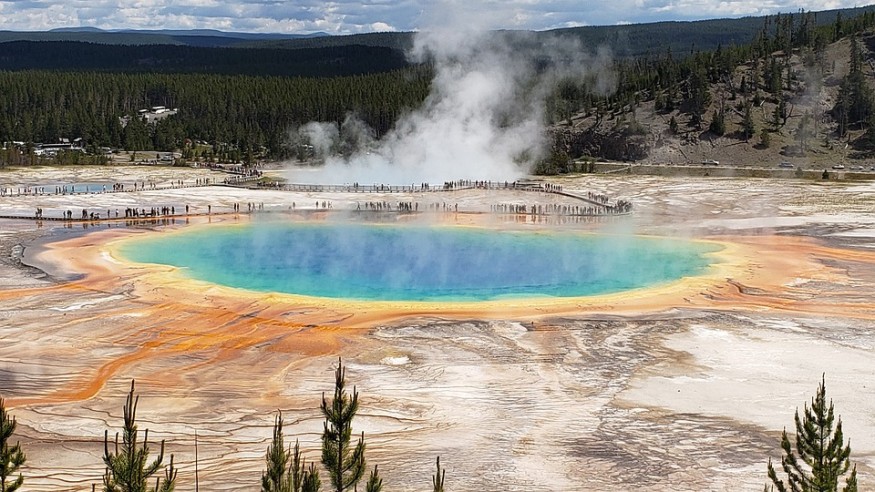Experts Observe Changes in Supervolcano Yellowstone

Located in Yellowstone National Park, the Yellowstone Supervolcano is one of the most popular volcanoes worldwide with its caldera being around 35 miles wide by 50 miles long. Its last explosion was recorded around 640,000 years ago.
However, just recently, a volcanologist from the University of Leicester reported that the Yellowstone Supervolcano could explode as soon as next week. This, as experts believe, would cause dramatic changes to its surroundings.
According to the geological data, the last time that the supervolcano erupted, it created the caldera of the popular Yellowstone and the Lava Creek Tuff. Ron Smith along with other scientists believe that the supervolcano is due again for another explosion.
Also, it was found out based on the data collected by the USGS that its major eruptions happened every 600,000 to 800,000 years and many scientists including Ron Smith believed that based on the time an erruption could occur next week or soon.
Ron Smith, a former University Professor, is one of the scientists who believe that Yellowstone could erupt sooner than later. In the previous report of Latin Post, he discussed during his lecture that the smoke produced by the supervolcano is not the same as of the smoke produced during a campfire. Its smoke has pieces of rocks and minerals that can damage the lungs if inhaled.
However, Smith added that it is difficult to predict the explosion of the Yellowstone, but he said during his lecture at the Dixie University in Utah that because of the current status and acitivty of the Yellowstone it is up again for another explosion that could probably happen next week or even another thousand years from now. His statements were also supported by other scientists.
Smith said: "Yellowstone has gotten a lot of publicity because of the severity of a supervolcano and the effect it would have on the Earth. We cannot say that Yellowstone is overdue. It is probably going to blow again but it could well be 500,000 years from now or a week from Tuesday."
Meanwhile, the US Geological Survey (USGS) contradicts the beliefs of Smith and other scientists. In a published article in International Business Times, the USGS said that the foreseeable explosion of the supervolcano is extremely low.
They also added that even if the Yellowstone will erupt, it would only cause a hydrothermal eruption and not a volcanic explosion. USGS explained that hydrothermal eruption occurs in shallow reserves of hot water and this is less explosive compared to a volcanic eruption.
Either the explosion of the Yellowstone happens next week or in a thousand of years from now, people living around it must prepare at all times. It is indeed true that there is no technology yet that will help us predict the explosion of a mountain but preparing for its another explosion is better due to the current activities of the Yellowstone.
Its next volcanic explosion might not only put the lives of hundreds of people in danger but possibly the entire continent.
Subscribe to Latin Post!
Sign up for our free newsletter for the Latest coverage!
© 2026 Latin Post. All rights reserved. Do not reproduce without permission.












